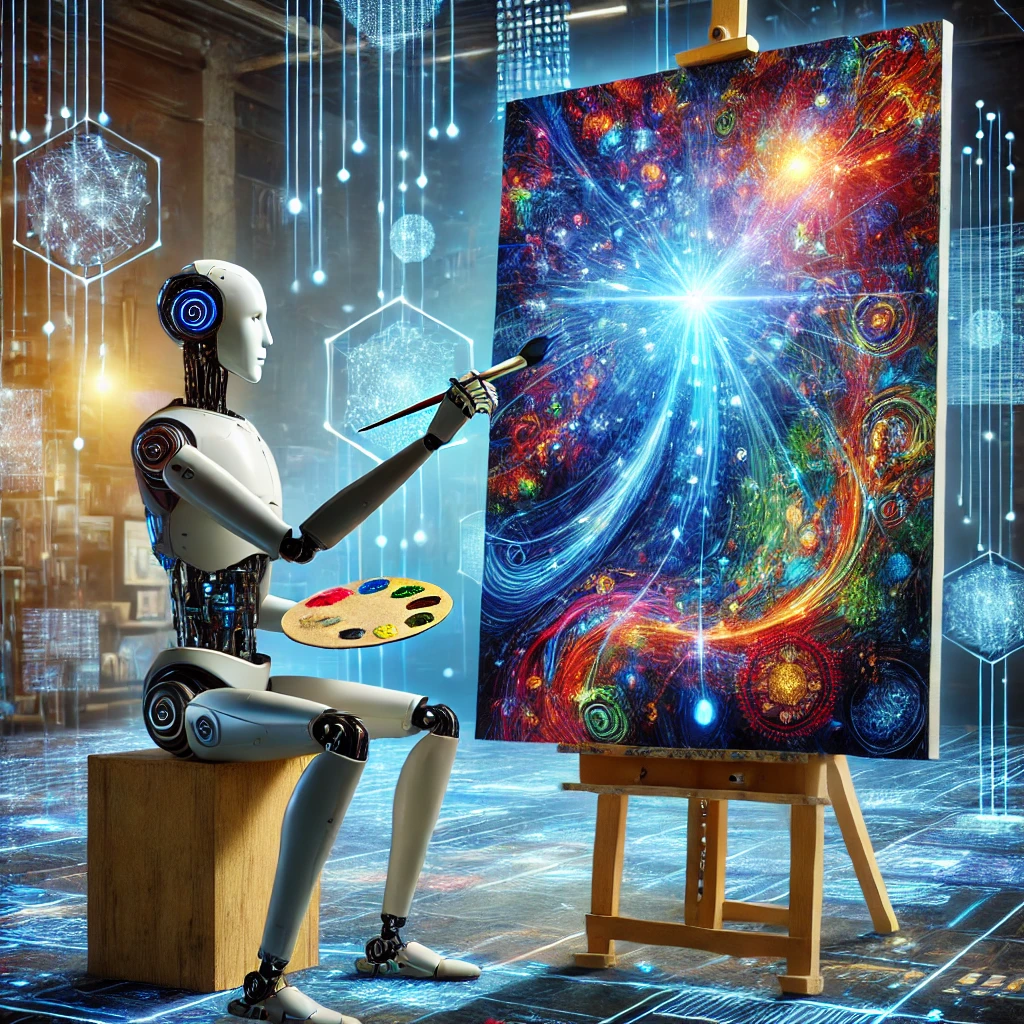
Lately, we’ve been hearing a lot about artificial intelligence (AI) and its advancements, haven’t we? Some people welcome this technology with excitement, while others feel a bit uneasy. "AI created this, AI wrote that, AI won something…"—it inevitably leads us to ask: "Will this technology eliminate us, or will it revolutionize our lives and open the door to a new era?"
Let’s dive into this topic like we’re having a friendly chat. Should we fear that AI is taking over creativity, or does it bring us closer to an unimaginable future?
#What Are AI and Creativity All About?
Artificial intelligence (AI) is essentially a technology that enables computers to think and make decisions like humans. Generative AI, specifically, takes it a step further by tackling what we call "creativity." Today, if an AI can write poetry, paint pictures, or compose music, it’s thanks to this generative AI.
Imagine we gave you a pen and paper—you might think, imagine, and write what comes to your mind. But AI does this by utilizing vast amounts of data at its disposal. With the right prompts, it can produce a novel draft, a poem, or a piece of digital art. Fascinating, isn’t it?
Is This Technology a Threat?
Let’s pause and think. Throughout history, we’ve always had the same reaction to technology: "This new thing will take our jobs, make us irrelevant!" From the printing press to computers and even the spread of the internet, we’ve faced similar fears. Yet, these innovations ultimately made our lives easier, more efficient, and often more enjoyable.
As AI becomes more prominent in the creative realm, some people worry, "Is artistry dying?" Think about it—when AI creates a painting or writes a poem, what value does it hold? The key here is to remember that AI is a tool. It doesn’t have feelings or emotions. It can’t replicate the emotional connection or attachment you bring to a painting or poem.
Does It Open the Door to a New Era?
Now let’s look at the brighter side. AI creativity isn’t a threat—it can be seen as a new opportunity. Imagine you struggle with writing but have fantastic ideas. AI gives you a platform to express those ideas. Or suppose you’re a graphic designer pressed for time; AI can generate drafts for you.
AI has the potential to support creativity, enabling us to produce more original and innovative work. For example, a carpenter who has been crafting furniture by hand for years might use AI-powered design software to create stunning custom furniture. In this way, technology can expand our abilities.
Ethical Questions: Where Do We Draw the Line?
Of course, we can’t avoid asking these questions:
Can an AI creation be considered art?
If an AI writes a poem for me, who owns it?
Does it matter who controls the technology?
There’s no clear answer to these questions, but one thing is certain: AI relies on data provided by humans. The better the data, the better the results. However, this raises ethical issues—who owns the rights to an AI-generated painting created from an artist’s work?
Finding Balance
In conclusion, AI creativity can be seen more as an opportunity than a threat. But we must define its ethical boundaries properly. Instead of fighting technology, we should find ways to work in harmony with it.
As you read this, you might realize that every new technology brings both fear and excitement. But the technologies we once feared have improved our lives today. Similarly, AI can be a tool that enhances our creativity.
So, let’s strive to balance AI and creativity, leveraging its opportunities without fear. After all, this technology is in our hands, and its control is entirely up to us.
Congratulations @cryptohuman43! You have completed the following achievement on the Hive blockchain And have been rewarded with New badge(s)
Your next target is to reach 400 upvotes.
You can view your badges on your board and compare yourself to others in the Ranking
If you no longer want to receive notifications, reply to this comment with the word
STOP